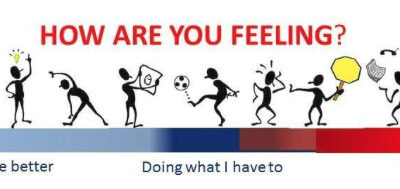SDI News

Stress
Anything that poses a challenge or a threat to our well-being is a stress. Some stresses get you going and they are good for you.
It is often what provides us with the energy and motivation to meet our daily challenges both at home and at the workplace. Stress in these situations is the kind that helps you “rise” to a challenge and meet your goals such as deadlines, sales or production targets, or finding new clients. Without any stress at all, many say our lives would be boring and would probably feel pointless.
However, too much stress can have negative impacts. In this blog I am focusing on stress that is bad for you. When the feeling of satisfaction turns into exhaustion, frustration or dissatisfaction, or when the challenges at work become too demanding, we begin to see negative signs of stress.
Can stress cause health effects?
Yes, stress can have an impact on your overall health. Our bodies are designed, pre-programmed if you wish, with a set of automatic responses to deal with stress. This system is very effective for the short term “fight or flight” responses we need when faced with an immediate danger. The problem is that our bodies deal with all types of stress in the same way. Experiencing stress for long periods of time (such as lower level but constant stressors at work) will activate this system, but it doesn’t get the chance to “turn off”.
The body’s “pre-programmed” response to stress has been called the “Generalized Stress Response” and includes:
- increased blood pressure
- increased metabolism (e.g., faster heartbeat, faster respiration)
- decrease in protein synthesis, intestinal movement (digestion), immune and allergic response systems
- increased cholesterol and fatty acids in blood for energy production systems
- localized inflammation (redness, swelling, heat and pain)
- faster blood clotting
- increased production of blood sugar for energy
- increased stomach acids From: Basic Certification Training Program: Participant’s Manual, Copyright© 2006 by the Workplace Safety and Insurance Board of Ontario.
Stress can contribute to accidents/injuries by causing people to:
- sleep badly
- over-medicate themselves and/or drink excessively
- feel depressed
- feel anxious, jittery and nervous
- feel angry and reckless (often due to a sense of unfairness or injustice)
When people engage in these behaviours or are in these emotional states, they are more likely to:
- become momentarily (but dangerously) distracted
- make errors in judgment
- put their bodies under physical stress, increasing the potential for strains and sprains
- fail in normal activities that require hand-eye or foot-eye coordination.
Stress can also lead to accidents or injuries directly by not giving the person the control necessary to stop the threat to their physical well-being.





